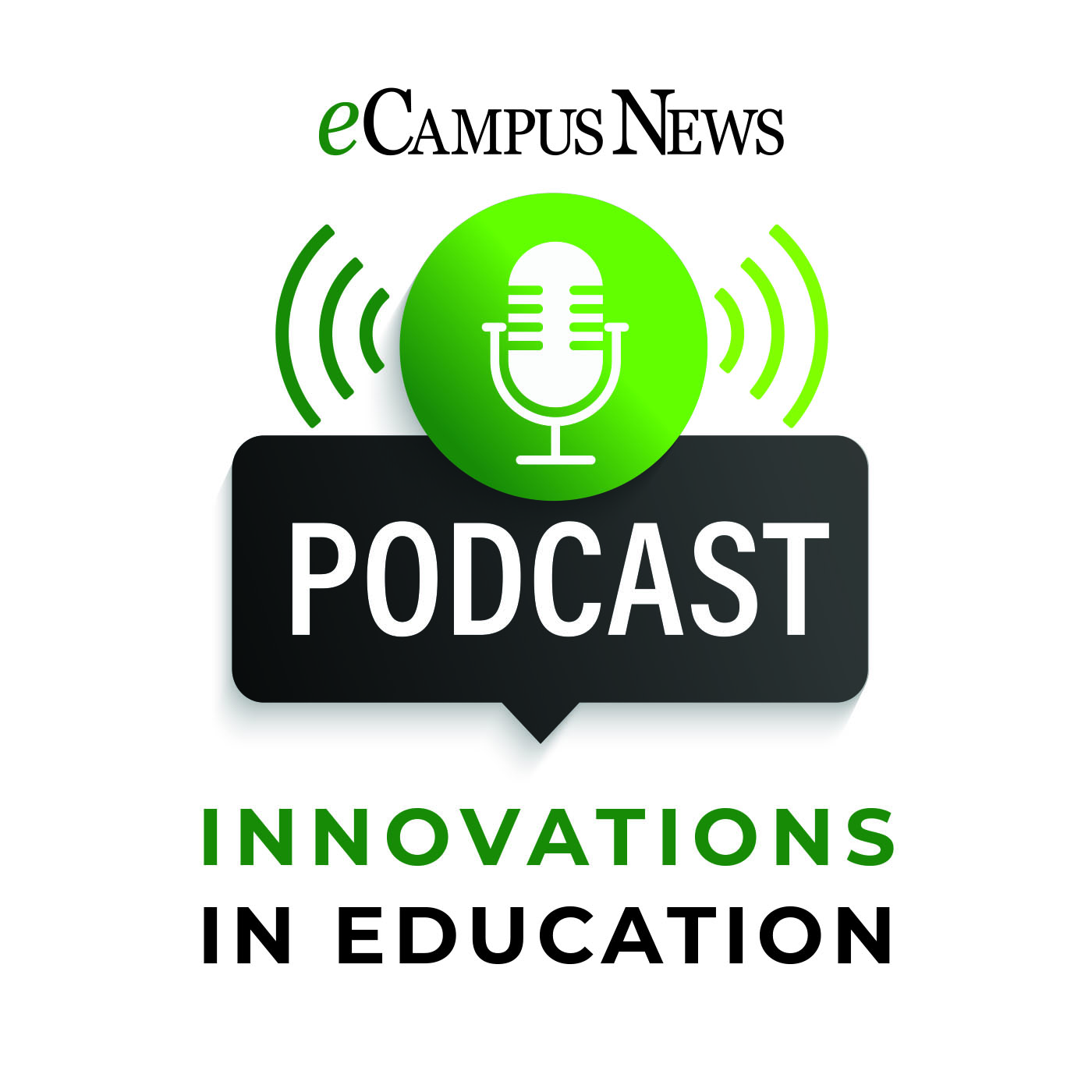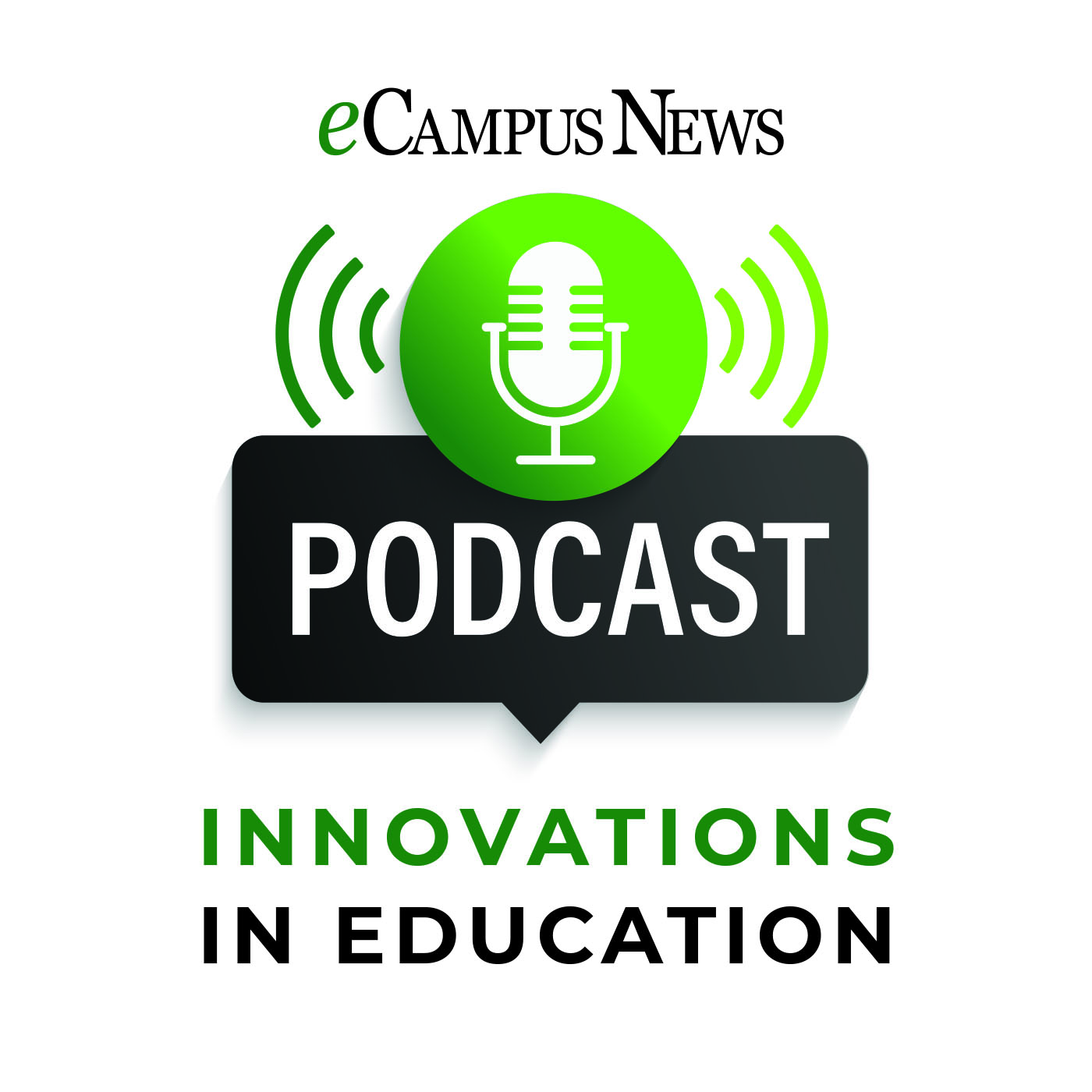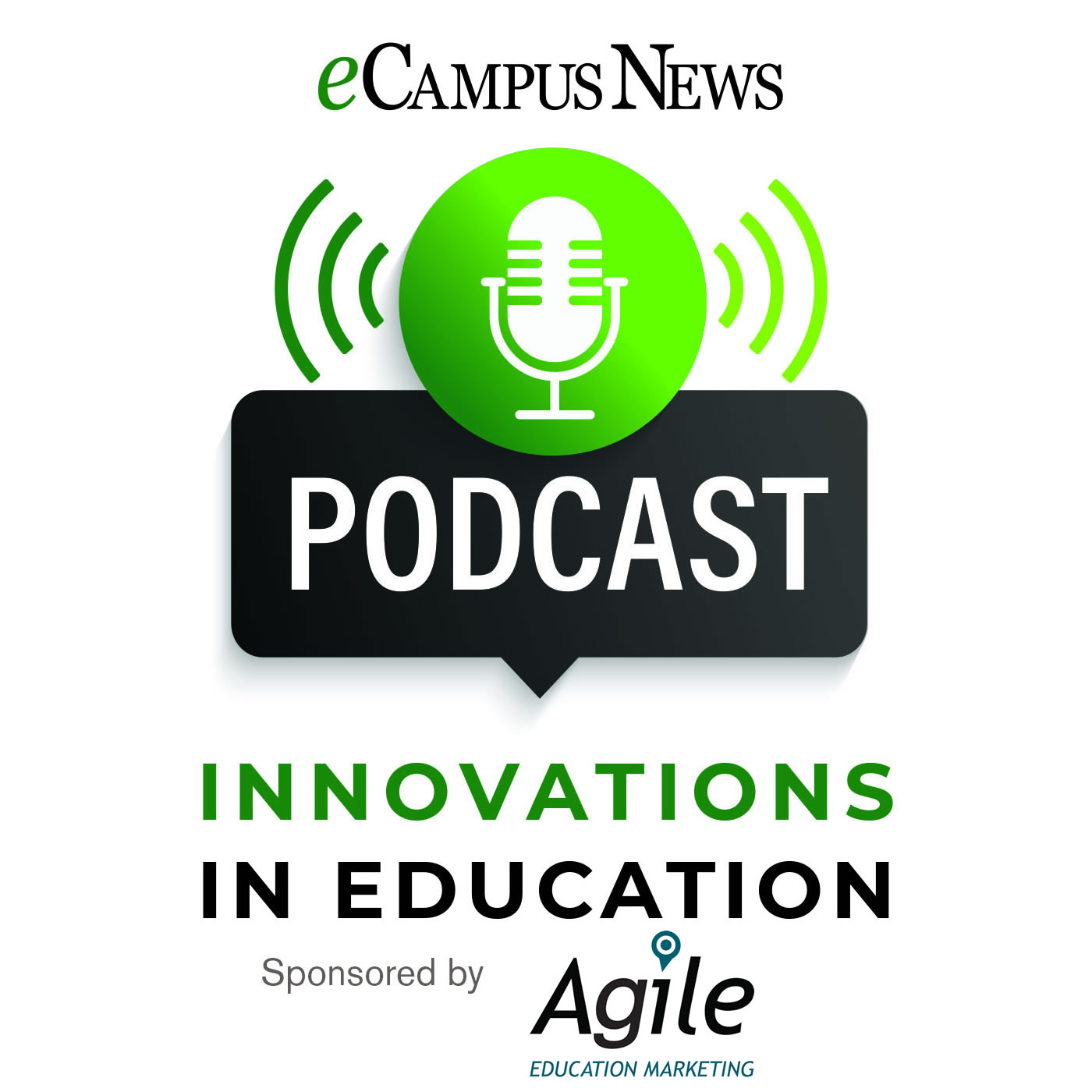Episode Transcript
So let's let's. Talk about what data we have and what data we don't have right. I think what we are starting to converge on both in the US and globally is some common language. What we mean when we say a micro credential right is that these are these short term but also usually online objects that can be connected to a course but really are just a verification of a skill that you either. Already possess or something that you learn in short in short order, but that there's something online that you can share that employers can look directly at and say ohh, this person has this skill but. The problem that comes that comes about is that because a lot of places are providing these colleges and universities, private providers, professional associations are providing micro credentials, there's and there's not yet federal regulation or state regulation or accreditation for these things, right? We don't know a lot either about the students who pursue them or about what their outcomes. Are and what my? You know what my my colleagues and I have been trying to do is collect as much data as we can on micro credentials and other short term credentials to get a sense of who the students are and what what outcomes look like. So I think as you would expect with workforce oriented credentials, most of the people pursuing them are non traditional age college students. So these are not you know these these are these are folks who are often 25 and old 25 and older, often much older, many of them in fact have completed other degrees like other college degrees beforehand and their goals are explicitly about the workforce they're trying to explore. Their new career opportunities, advancement in their current jobs or specifically is seeking to escape things you know, low wage work and so a lot of why they're pursuing when you ask a micro credential student or a non degree student why they're in the program that they're. They're doing it specifically for a workforce goal for an employment goal, which is different than traditional higher Ed for sure. And then in terms of outcomes, what we found in a view of existing research, again, there's not much. I think that's what's important is like when you look at the like at our review of the literature, we couldn't find a whole lot of studies and certainly not a whole lot that. Focus on micro credentials themselves, but when we when you, the outcomes are highly variable, which is to say. Very specific job focused things and things like it and construction seem to have a payoff. Things that are less focused, things on like office administration or basic skills or something like that don't have measurable pay offs that we can identify yet and I think. Even those widely varying estimates, it just points to the need for real data, which is that micro credential providers that people who provide the courses and the credentials themselves don't have to do any sort of reporting the the way that a college and university has to on who the students are pursuing them, how many, how many have been awarded and what happens later. So I think the limited review says we've got. Varying estimates. But everyone who writes about non degree credentials of all forms is saying we need systematic evidence. The question is whether or not and under what circumstances that's going to happen.
Kevin Hogan
Yeah. So it's still a very opaque scenario when it comes to this and it it seems specifically when you break it down to particular subjects or areas of of study or majors as well, it seems from my cursory look at these computer science and programming, this seems to be a very. Solid ability to kind of accreditation. Someone having gone through a course of Python or whatever or.
Daniel Douglas
Yeah, Python, SQL, even software is like Excel or Tableau or or things like this that when it's a very specific skill, right? And especially there's another phenomenon that we should probably be talking about in the space of micro credentials and skills based hiring, right, which is increasingly there are States and employers who are saying. At least nominally, that they're committed to hiring people not based on degrees, but based on verified skills because they they're seeing that as a way to capture more potential. Talent in the hiring pools and but where we've seen that happen most, at least in the in the public sector for state governments, local governments is in exactly those spaces and like IT and data analytics and database management because there's. Lots of jobs in the public sector that are starting to require that and not enough people to fill those roles cause people with those skills often have lots of opportunities in the umm. So we can see why there would be a payoff because there are private firms and public sector orgs that are looking specifically to hire people that they know can do these things. And I think the same thing would be true in skilled trades like construction and advanced manufacturing because again, there's more jobs than there are people with those skills. If a micro credential in more general field is going to have a someone with that is going to have a harder time because they're competing. Being with bachelor's degrees and associates degrees kind of traditional credentials that the hiring managers in those spaces, they know what to do with those, they're not really sure about the quality and this is what one of those, the there was a recent survey actually that ecampus news covered that showed what are employers thinking about micro credentials. And while most employers are like, yeah, this sounds like a great idea continuous. Learning development. There's still a or skepticism about the quality of these things, especially for like soft skills.
Kevin Hogan
Yeah. Yeah. And kind of in the big picture, what does this mean for the traditional kind of liberal arts degree?
Daniel Douglas
It's interesting that you asked that because I'm a higher Ed researcher and I have been my whole adult life and micro credentials is one thing that I do. But when I teach at like a course on higher Ed, I talk about Yvonne Ilich, who's a philosopher who talks about deschooling society. And this is years ago. This is like 1970s, right. And he talked about.
Kevin Hogan
Wow, yeah.
Daniel Douglas
The idea that the the society is too captured by education and credentialing, and that the alternative for him that he proposes this very radical alternative at the time, is this idea of a like a network of skill sharing where, you know people could could teach other people skills directly without being mediated. By educational institutions and. At the time, no computers, and so everyone was like he he was proposing the big phone book of people who provide skills and that could match with others who want to learn those skills. You know, the Internet and micro credentials to me seem like whether or not people were reading Ilitch or not, is it might be an attempt to go there, but. When I talk to people in the, you know, in the non degree world in the you know in the micro credential world, the question that they have which I. Think. Is ill which is question too is valuation right that? Until employers. Understand the quality of any non degree credential and understand what's under the hood. You can give people credentials of anything on them, and until an employer values it like a currency, it's not going to have a payoff. And so I think that's the the big question right now. If anyone asks like, well, should you get a micro credential, I go, maybe it's just a supplement to a degree, but not a replacement for it, right?
Kevin Hogan
Yeah.
Daniel Douglas
That's the stage of this that we're at Will, will we ever get to that stage where? Where micro learning and a set a cascade of of badges on your resumes takes the place of. I earned a four year bachelor's degree from an accredited university.
Kevin Hogan
Yeah.
Daniel Douglas
That's undetermined as of yet in terms of Labor market outcomes, it may be more field specific. It might be that in IT where and. This is plus saw change right? Like that as much as that. IT firms have and construction firms been hiring people without degrees for a long time. They're kind of used to it, right? They're looking for skill. And so people got have gotten trained through unions for years and hiring halls and, you know, sectors of the economy where we're used to hiring people without degrees are still doing that. And we see the highest return on things like micro credentials in exactly those spaces, right? Yeah. Whether or not it's going to gain currency in places where the degree has been the standard for, you know, 100 years. Remains to be seen.
Kevin Hogan
Right. I mean it's very much like I think about engineering and people will get their undergrad degree or even their masters degree, but then they continue to get professional certification on particular applications. This is just kind of an extension of that tradition.
Daniel Douglas
Absolutely. And I think that's another word on micro credentials is that if you're in a profession already. The idea of. Continuing professional development has been around for a long time now. We're just adding a digital tablecloth on top of it with a micro credential, right? That teachers go on for continuing certifications for years, and it's no accident. The National Education Association has a list of micro credentials. Now in engineering, as new technologies develop as new processes develop and practicing engineer is gonna go ahead and get certified in that even like a dental hygienist or a, you know, a medical technician, get certified in new technologies as they crop crop up. That's the whole point of being a technologist or a, you know, a medical technician is that you're going to have to keep redeveloping. Like, keep developing your skills as new things come up for people who are already employed and seeking advancement or just continuation of their employment. This has already been real and we're just coming up with a new way of kind of operationalizing it.
Kevin Hogan
How about when it comes to the branding of institutions themselves and the offerings of of micro credentials? So you, you you look at well, we'll go back to IT or programming and you have maybe a a Stanford brand, you know versus just you know your your everyday state school brands. Do you see those perceptions changing at all, or is that something that will continue to be a standard?
Daniel Douglas
I think it's a really interesting question. I think a there's now a marketplace for. Micro credentials, right? And another article that I that I was reading up on in on campus news kind of kind of showed that private providers are able to do this faster and develop content faster than colleges and universities. And so colleges and universities are starting to partner with these private providers in a way that may pose a challenge. For the future of those higher education institutions, if the private providers are really doing the work but for big established names in education like Harvard and Stanford and Princeton, like, really big educational. Names brand names help any product sell and to the degree that this is a product to be sold to potential consumers, right.
Kevin Hogan
Yeah.
Daniel Douglas
Could it change? Yeah, if there were clear outcomes data, if a credential provider could say look our credential is leading people to better jobs and that you could expect to earn this kind of average bump in your salary, you know within two years or within a year of completing this credential.
Speaker
Ohh.
Daniel Douglas
Outcomes data might persuade people. I think colleges increasingly are pivoting to showing people. Here's your major, and here's the occupation it leads to. And here's the average salary that those kinds of advertisements, that kind of messaging around degree programs, especially for workforce oriented programs. Study, right? Yeah, matters. And I think it can matter in the same way for micro credentials if they can prove their. If they can prove their. Their benefit in the labor market?
Kevin Hogan
Yeah. Last question. When you look at the the research, how do you measure the pace of this change? Is it something that's accelerating? Is it something that is, would you say, evolving more than just kind of being a a hectic pace for our readers, our listeners who are involved in establishing micro credentialing in their institutions of higher learning?
Speaker
Yeah.
Kevin Hogan
How should they take the temperature?
Speaker
So.
Daniel Douglas
I think there are a couple of good data sources out there. A couple of good actors in that space, like trying to track how many of these things are offered. So class central is a is 1 organization that tries to track the number of micro credentials out there. There's also credential engine, which doesn't just work on micro credentials, but tries to get a comprehensive count of all the credentials. Being offered in post secondary education space, so those are two places to see, well, how are offerings growing? Changing. But what we don't know is. Again, back to the regulation problem. We don't know how many people are participating, how many people are going through micro credential courses versus how many people are actually getting some of the certifications, some micro credential courses lead right to a badge at the end of it. Others are like these courses in like cloud computing where but at the end you still have to take the comp Tia exam. To get that to get that credential so we don't know how many people are making that. And absent good data from either the micro credential course providers, the micro credential providers themselves when they're different entities, we don't really know the amount of uptake in learners. We can know how many more people are offering, you know, and how many more entities institutions are offering, but we don't really know much about. Learners and I think. Regulation, or at least reporting requirements, could help, but it's I don't see that forthcoming yet for maybe longer programs. Short-term Pell, if that passes through Congress. Some of the longer micro credential programs could be regulated and could be eligible for Pell Grants, and we know a lot about them because then those providers would have to submit to the federal government. But for the shorter things there's there's nothing on the horizon that's going to suggest that regulation is going to come or that data is going to be more widely available. So I I guess, I can't say.
Kevin Hogan
So we're still in the Wild West.
Daniel Douglas
A little bit and that's why the question of whether or not micro credentials come to replace traditional degrees as a marker of preparedness for the workforce. Until we're out of the Wild West, or at least there's some portions of this market that are out of the Wild West, it's going to be a hard sell for employers. I think people who are doing hiring want to be able to be confident in something. And if they don't know what's under the hood, they don't know how these credentials are produced. That's good. That's a tough.
Kevin Hogan
Well, it's fascinating stuff. It's an exciting time. Appreciate your work and attempt to try to wrangle this stuff in and and actually have some real science behind the phenomenon. So once again, Dan, I appreciate your time and your insights. So that wraps it up for this episode of Innovations and Education. Be sure to go back to ecampusnews.com. And dig through the archives to find similar conversations. Also, be sure to go up and check out the webinars and as well as recent articles that we're posting every day. Thanks for listening.


